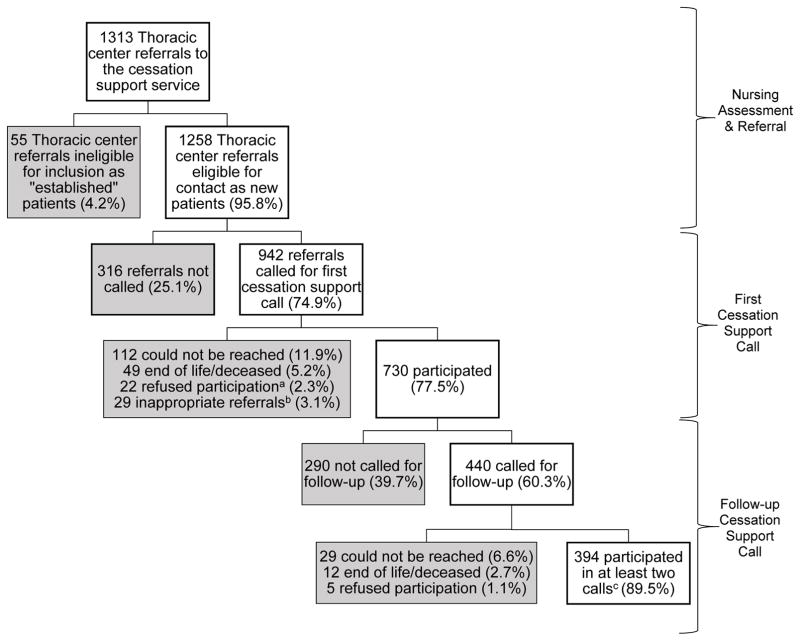Figure 1.
Participation for patients referred to the cessation support service from the thoracic center between October 2010 and October 2012.
aThose who refused participation either hung up on the cessation support service cessation specialists or said they were not interested in participating/“do not bother me again”. n=14 answered call 1 and said do not bother me again, but completed the phone call enough for the stage of change to be assessed (n=1 had quit for at least 7 days prior to contact, n=9 were in pre-contemplation, and n=4 were in preparation). n=5 hung up before the stage of change could be assessed and n=3 said do not bother me again because they were no longer patients at RPCI.
bAmong inappropriate referrals n=25 quit years ago, n=3 were never users, and 1 was an occasional smoker.
c41.8% of patients referred and called for at least once cessation support call participated in a follow-up call (394/942). n=7 participants were not reached in the first call and proactively called the cessation service after being sent a “no reach” letter inviting them to participate in the free service, but were not included in the final analyses.
Please note: Follow-up time for the first call and follow-up was until August 2013 for those referred through October 31, 2012. The average number of days between referral and the first cessation support call for all thoracic patients is 35.9 days with a median 14 days and an average of 1.63 call attempts made. The average number of days between the first cessation support call and follow-up for all thoracic patients is 49.3 days with a median of 21 days and an average of 1.8 call attempts made.

